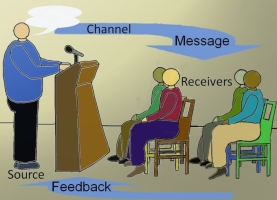 A focus on legacy leadership will drive every decision that you make and every action that you take. So, what is Legacy Leadership?
A focus on legacy leadership will drive every decision that you make and every action that you take. So, what is Legacy Leadership?
“The things which you have heard from me in the presence of many witnesses, entrust these to faithful men who will be able to teach others also.”
2 Timothy 2:2 (NIV)
Try not to become a man of success, but a man of value. — Albert Einstein
It surprises me how many husbands and fathers don’t spend enough time thinking about their legacy – what they will leave behind for the family that they love and the people they serve. I won’t even go into how many husbands and fathers only carry the life insurance supplied by their employer. But they seem to care more about the financial legacy they will leave than the Spiritual one that will be left behind.
 But the harsh reality is that each of us is leaving a legacy whether we realize it or not or whether we want to or not. The question is whether or not it is a legacy that is positive and has far-reaching implications into the following generations. And for me, the legacy that I want to leave is a spiritual one. I want to leave one that is pleasing to God. And if it is pleasing to God, I am pretty sure I will be OK with it as well.
But the harsh reality is that each of us is leaving a legacy whether we realize it or not or whether we want to or not. The question is whether or not it is a legacy that is positive and has far-reaching implications into the following generations. And for me, the legacy that I want to leave is a spiritual one. I want to leave one that is pleasing to God. And if it is pleasing to God, I am pretty sure I will be OK with it as well.
Webster’s dictionary defines legacy as, “anything handed down from the past, as from an ancestor or predecessor.”
Legacy is not bound by age or time served. Legacy represents your entire body of work at each stage of your life as you establish the foundational building blocks of a family and accumulate the required wisdom to contribute to the success of that family unit. Your legacy grows with each new experience, with each test or trial, and each time you inspire others to see something beyond our current circumstances.
For many, leaving a legacy is associated with the end rather than the beginning of one’s life.
Click here to read the rest of the article »

















